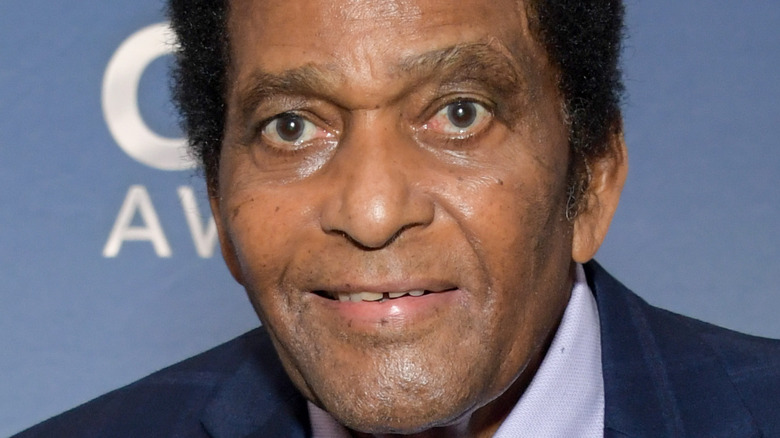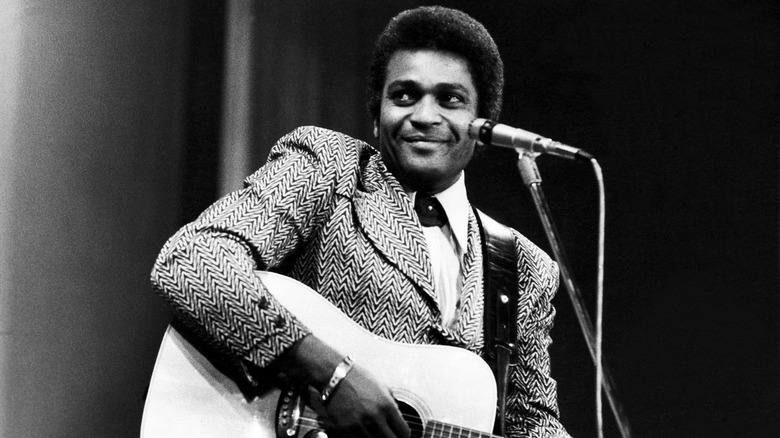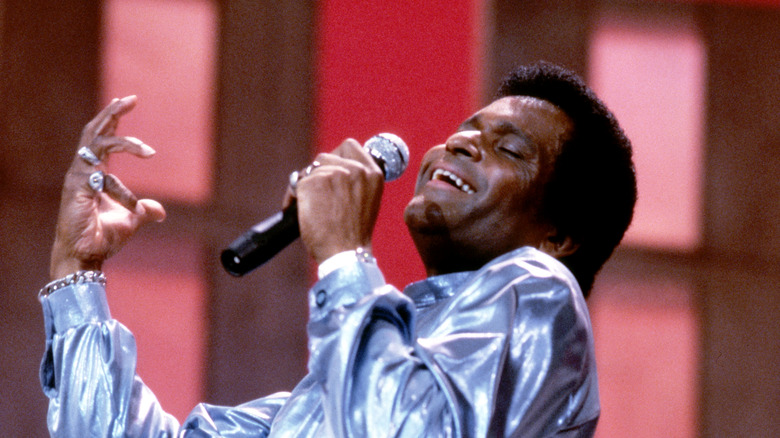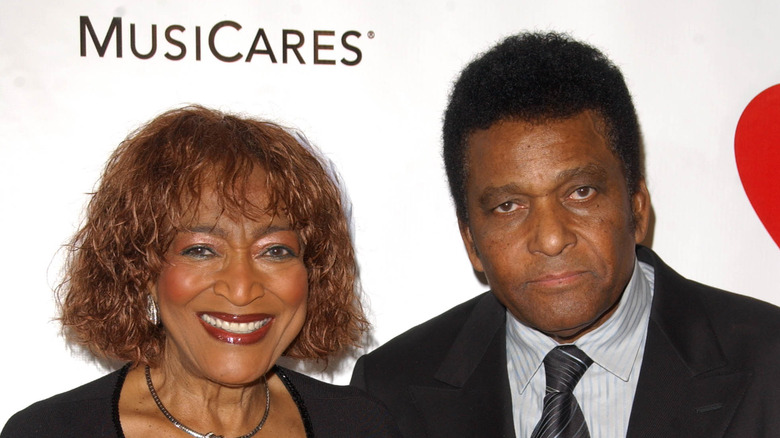Here's Who Inherited Charley Pride's Money After His Death
Charley Pride defied prejudice during his life. The "first Black superstar" of country music (per Rolling Stone), Pride became popular in the late 1960s after a series of singles caught the attention of country music fans worldwide (via the Country Music Hall of Fame). He had more than 50 different singles in the top 10 country music charts during his career (via Britannica) and 36 different No. 1 hits, Biography notes. Later in life, he won multiple different awards for his body of work, including the Country Music Association's Willie Nelson Lifetime Achievement Award in 2020.
But though Pride undeniably was successful in his chosen career, that doesn't mean it was easy for him to get taken seriously as a Black country music artist. In fact, when Pride's first few singles were released, he and his label were deliberately secretive about his race, and many listeners didn't even realize Pride was Black until they saw a picture of him on the cover of his album (via the Country Music Hall of Fame).
Though Pride had mostly stopped releasing music by the early 2000s (per LP Discography), he continued to perform right up until the end, when, in 2020, he died of COVID-19.
His path to music
Charley Pride started playing music seriously when he was 14 years old, having just bought his first guitar (via the Country Music Hall of Fame). Still, Pride's path to music wasn't exactly linear. Pride, whose parents were sharecroppers, tried his hand at a few different careers before he ended up in music (via Britannica). Most prominently, Pride played minor league baseball for several years. He was also in the U.S. Army, according to Rolling Stone.
Then, when Pride was in his late 20s, he auditioned for a music producer in Nashville, Tennessee. Prior to this, he had lived in Montana. While he was working at his different jobs — including as a baseball player — Pride carried his music with him everywhere, even putting on musical numbers on the team bus between games (via Biography). The producer liked Pride's voice and signed him to RCA Records. Within two years, Pride's music had made it big, and he was establishing a career as a country artist.
At this same time, Pride had a strong family life. In 1956, Pride married his wife, Rozene, and they later had three kids together, according to Wide Open Country.
The scandal that emerged after Pride's death
Though Charley Pride's family life may have looked idyllic on the outside, complications were revealed after his death when a fourth child emerged from the woodwork. Tyler Pride was the result of an affair between Charley Pride and a flight attendant, according to Celebrity Net Worth.
According to Tyler, he wasn't completely distanced from his father as a child. Instead, when he was young, he saw his father quite frequently, though visits tapered over the years (via Saving Country Music). However, this information seemingly contradicts with the fact that when Tyler was 13 years old, his mother actually took Charley Pride to court over child support payments. Charley denied Tyler was his son, and so a DNA test was needed to prove paternity. Once it was proven, child support payments were established — but Tyler says he never regained a strong relationship with his father like his other siblings might have experienced. In fact, Tyler claims that — though his siblings benefited financially from their father and even got a leg-up in the music industry from his influence — he sometimes had to "collect aluminum cans just to have enough money to eat," per NBC Philadelphia. Tyler revealed that and other details about his childhood in a court document released after Charley's death, in which Tyler sued the estate over his lack of inheritance.
Why Tyler sued the estate
In his will, Charley Pride had left his wife as the executor of his $40 million estate (via Taste of Country and Celebrity Net Worth), and the money went to his wife and three oldest kids. Tyler Pride received nothing, per NBC Philadelphia. Though the same outlet notes it's perfectly legal for parents to choose not to leave an inheritance to their children, Tyler based his lawsuit on the allegation that Charley's wife, Rozene Pride, influenced her husband unfairly to not include Tyler in his will. According to Tyler, Charley only distanced himself from his son to "keep peace" at home and keep his wife and children happy, and the musician would have wanted to leave Tyler more money.
Rozene, however, has staunchly denied these claims, saying that she and Charley had given Tyler plenty of money over the years and Charley had simply decided not to include Tyler in his will. "Much of what Tyler is saying about Charley and me is a lie that Tyler hopes reporters will spread to grab headlines," she said in a statement, according to NBC Philadelphia. "Tyler does not have a valid claim so he has resorted to a hurtful smear campaign."



